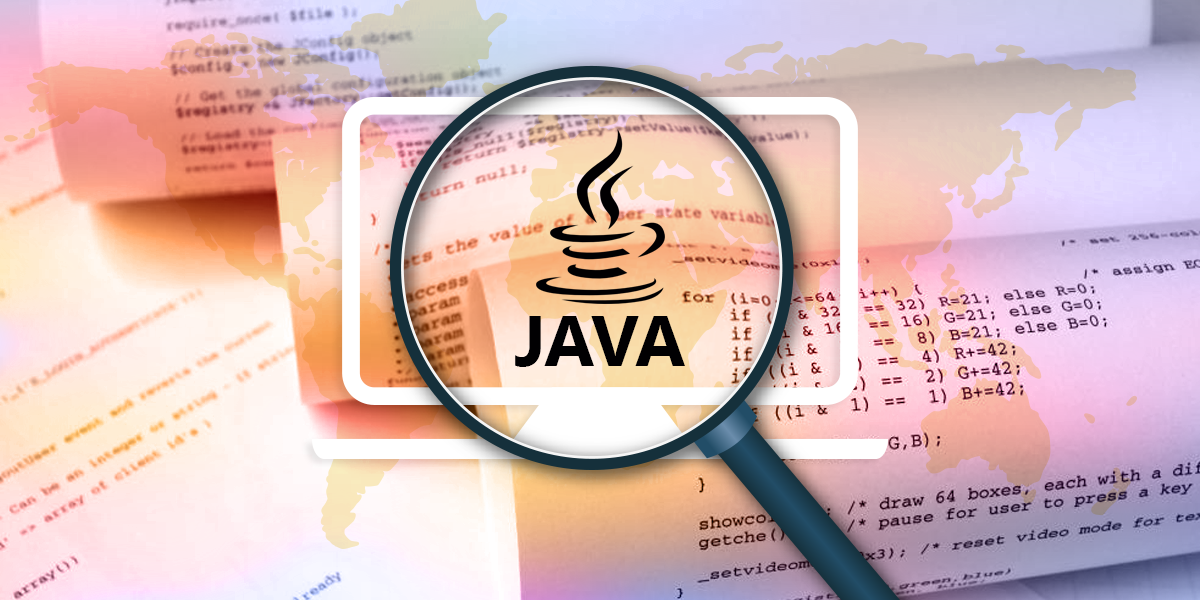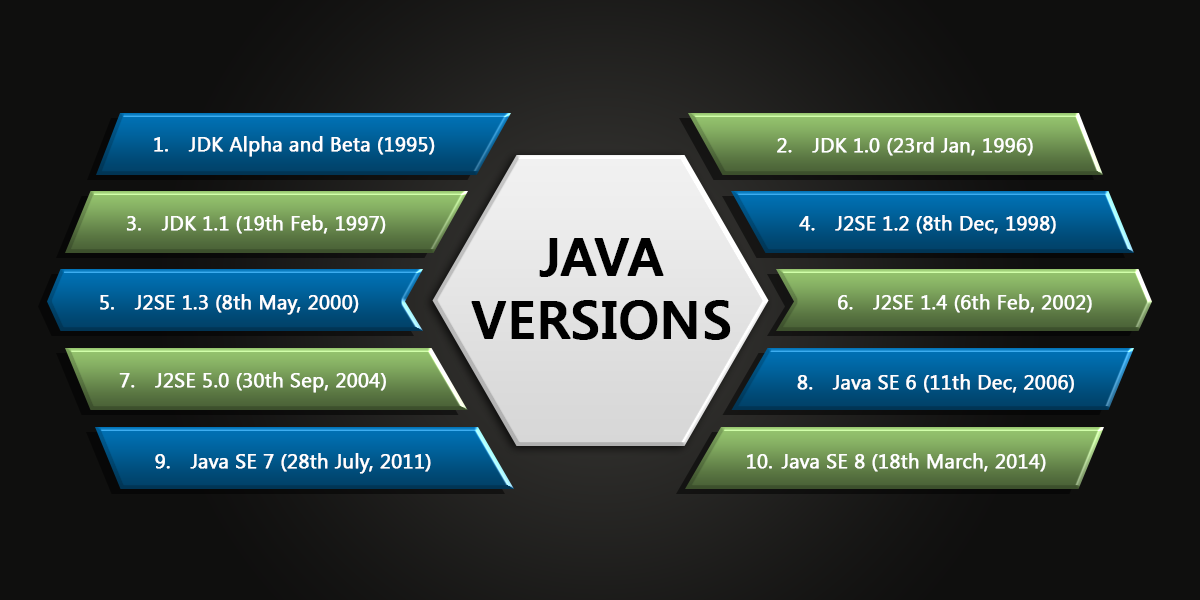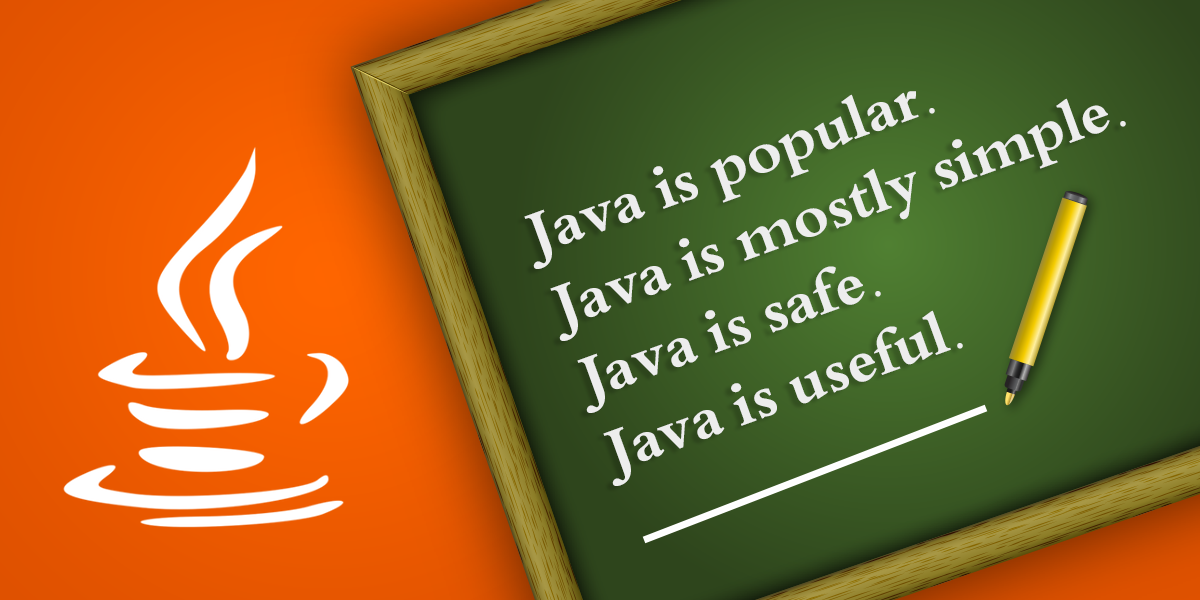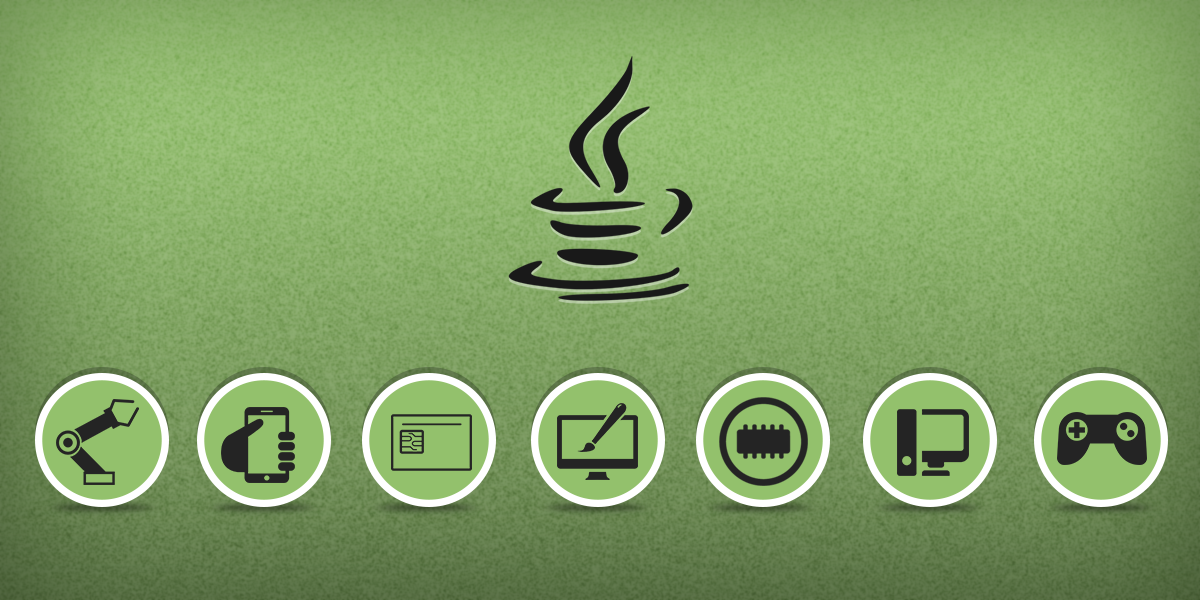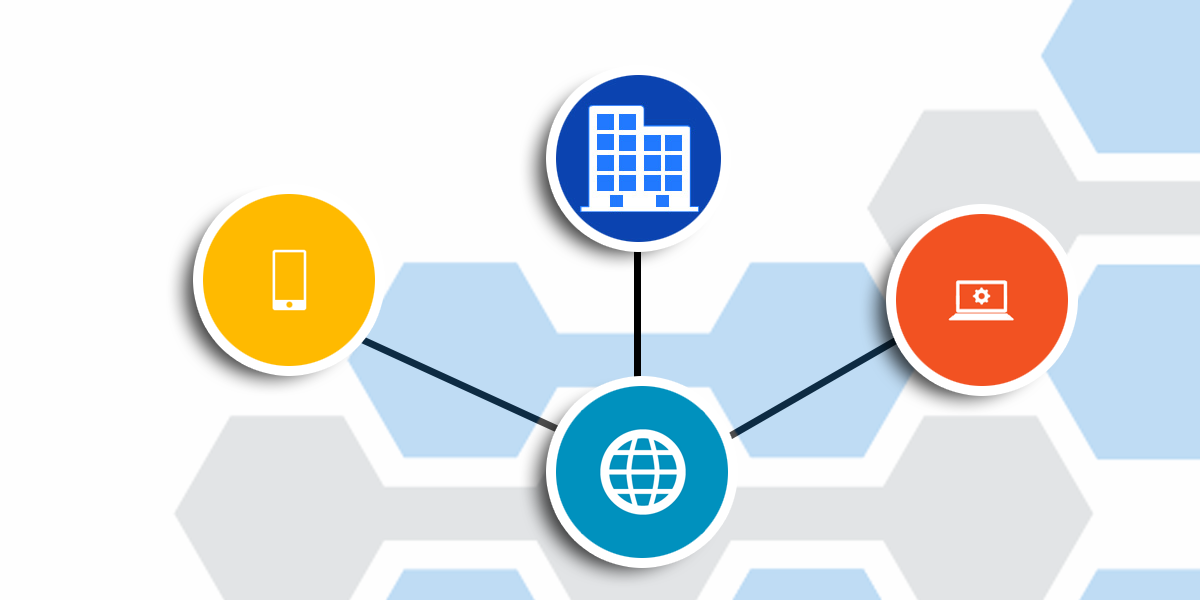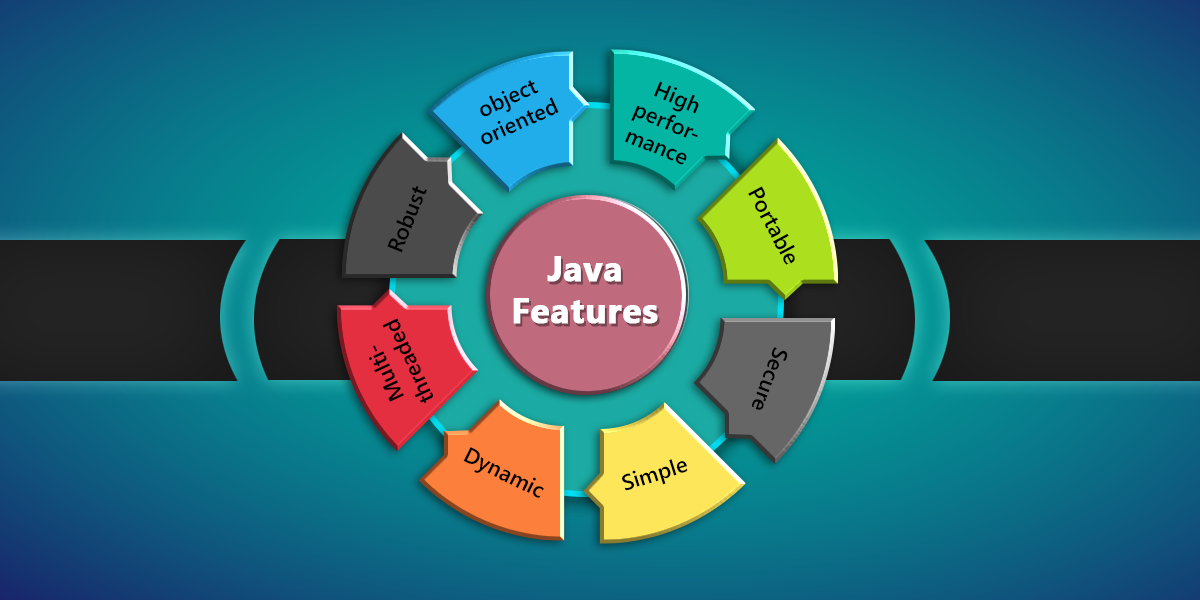In this article we will study about the history of Java, why it was named as Java, what are its features, types of Java applications etc..
History
- Today, technology has become a part of our day to day life but we never care for it. We just take it for granted and use the technical resources anywhere and anytime.Java history started from the Green Team. They diverted their efforts to develop a language for televisions, set-top boxes and many more digital devices.
- The initiators of the Java language project were the small team of Sun Engineers called as the Green Team which included James Gosling, Mike Sheridan, and Patrick Naughton.
- This project was started in June 1991. They invested their efforts to develop a language for televisions, set-top boxes and many more digital devices.
- Initially it was designed for small, embedded systems in electronic devices. But now its expanding above its limits.
- James Gosling named Java Language as “Greentalk” whose extension was .gt . Later it was named as Oak, but in 1995 it was renamed as “Java” because it was already the trademark of Oak Technologies.
Why Java was choosen as a name for Java Language?

- Green Team suggested different names for example like “dynamic“, “revolutionary“, “Silk“, “jolt“, “DNA” etc. They wanted a name that was easy to spell and fun to say.
- Out of all top choices Java and Silk were selected but most of them preferred Java as it was a unique name which referred to an island of Indonesia where first coffee was produced called as java coffee.
- Thus, java was originally developed by James Gosling at Sun Microsystems and released in 1995.
- You will be having various questions like what is java, where it is used, why use java and what type of applications are created using java?.
- Java is a programming language which is robust, high level, secured and object oriented that can handle and cope up with errors during execution.
- As, Java has its own runtime environment (JRE) and an application programming interface, it is called platform.
- Syntax of java are clear to understand and simple to learn if you study it seriously.
- There are number of devices that use Java.
- As per survey near about 3 billion devices run Java.
- Some of them are listed below:
- Desktop Applications such as acrobat reader, media player, antivirus etc. ues Java.
- It is also used in Robotics.
- Web Applications such as irctc.co.in, etc.
- Game Development.
- Enterprise Applications such as banking applications.
- Mobile Applications.
- Embedded Systems.
- Smart Card,etc.
- Java programming can be used for creating mainly four types of applications:
- Standalone Application:
- Web Applications:
- Enterprise Application:
- Mobile Applications:
It is a window based application also called as desktop application which is needed to be installed on every machine such as antivirus , different players, etc.
For creating standalone applications techniques such as AWT and Swing are used.
An applications that creates dynamic pages and runs on the server side is called web application.
Technologies such as jsp, struts, servlet,tec are used for creating web applications in java.
Enterprise applications mainly deals with the high level security, load balancing, clustering etc…
For example banking applications are enterprise applications that has an advantage of high level security, load balancing and clustering.
Enterprise applications are created using Enterprise JavaBeans which is a managed, server-side component architecture for modular constructions of enterprise applications.
Java is used in Android programming for creating android applications.
Also various mobile applications are created using java language.
- Java offers number of features which are easy and simple to understand.
- Simple:
- Platform Independent:
- Robust:
- Multi-Threading:
- Similarly there are many features like it is Object-Oriented, Architecture neutral
Portable, Dynamic, Distributed, High Performance, etc. that are supported by java.
Java is simple to learn as it is based on the syntax of C++.
Just master C++ you can understand java very easily.
Garbage collection is done automatically in java so there’s no need to remove unused objects.
Java serves as a software based platform.
It can run on multiple platforms e.g. Linux, Windows , Sun Solaris, Mac/OS etc.
Java code is compiled into byte code which is a platform independent code that runs on multiple platforms.
Java is sturdy in construction .
Exception handling , type checking mechanism in java, automatic garbage collection ,strong memory management,etc. are some of the features that make java robust in nature.
Java has the ability to serve more than one user at a time.
It can manage multiple asynchronous requests without the need to have multiple copies of the program running within the computer.
It’s like a separate program executing simultaneously.
Using java we can perform multiple tasks at once by defining multiple threads.
Thus, history of Java deals with the java development process that was initiated by James Gosling in June 1991 whose goals were to implement a virtual machine and a language that had similar features of C/C++ but with greater simplicity than C/C++.This resulted into java which was a platform independent language where you can code/write once and run anywhere.
Watch this video for reference:

